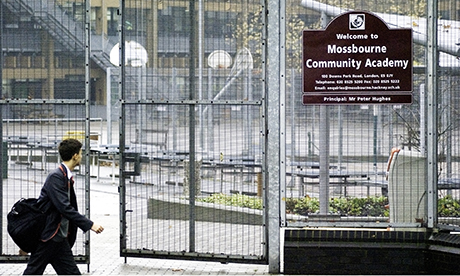Studying Mossbourne Academy from the inside
Dr Christy Kulz was one of Mossbourne’s first employees, helping staff carry boxes into the school as it prepared to open in September 2004. The relationship developed into a “long-term, part-time job”, with Kulz teaching drama and acting as a learning mentor to Mossbourne students.
A decade later, she has written a PhD thesis on the school which offers a detailed and passionate critique of its educational practices and ethos. She has gained unprecedented access, conducting hundreds of hours of interviews and observations inside Mossbourne.
While an employee, Kulz grew uncomfortable with what she calls Mossbourne’s “dynamic, disciplinarian environment”, including teachers’ “frighteningly draconian” shouting, which despite reservations, she herself also practised, trying to perform her role as a teacher “with conviction.”
This emphasis on discipline is Mossbourne’s famous USP, aimed at creating an environment where teachers can teach and students can learn. While it has been controversial, the approach has catapulted Mossbourne to the top of league tables and inspired widespread imitations.
However, in Kulz’s view, it has several deleterious effects, including the failure to “teach young people that we believe in democracy, cooperation or negotiation,” and the risk of creating future citizens who have paid high “social and emotional costs” for their qualifications, suffering from “docility, compliance, a lack of critical thinking, extreme labour hours, stress and anxiety.”
Kulz is interested in these costs, and the effects the school’s culture has on its students who put up with them because they think it is a worthwhile trade-off.
A good illustration is Isaac, one of the students Kulz interviewed. About to finish Year 11, he had mixed thoughts about his time at Mossbourne, describing it as like being caught by the Child Catcher in Chitty Chitty Bang Bang, “but in a good way”. Isaac was planning to go elsewhere for sixth-form and felt like five years at Mossbourne had been “too much”, but also “thought he was still doing much better than he would have done elsewhere because he needed pushing”. In the end he stayed.
Likewise Florence, a sixth-former, who said “we used to call here the prison because it actually did seem like that sometimes”, but when asked whether, if she had children, she would send them to Mossbourne, said she would.
It is interesting to see Kulz’s thesis as asking how a good school can be made even better by finding new ways of looking at what it is like. By talking to students, she accesses a world where it is difficult to judge by results because the results have not happened yet. And rather than balance present discomfort against future success, she asks about future discomforts which might also ensue.
For instance, one of the parents Kulz speaks to believes “his family is already disciplined” and wonders if his daughter will suffer in the employment market because, he thinks, Mossbourne does not encourage her to develop “warmth or flair”.
Some of the thesis possibly comes on too strong, however, and risks being dismissed by saying the school is either being pragmatic or practises tough love. For instance Mossbourne is said to “blend numerous techniques to mould impressionable youngsters into self-structuring individuals invested in obtaining value through market participation”: it is unlikely anyone running the school would contest that, but would also say that to do otherwise would be to fail to prepare students for challenges which await them.
Kulz’s PhD is freely available online, but reading it is a grim slog (when you reach the bit about “Žižek’s reworking of Lacanian psychoanalysis” then you’re past half way, keep going).
Nevertheless, it is an impressive piece of investigative work which should be made accessible to wider scrutiny and less muddled by academia.
Bring on the paperback.

